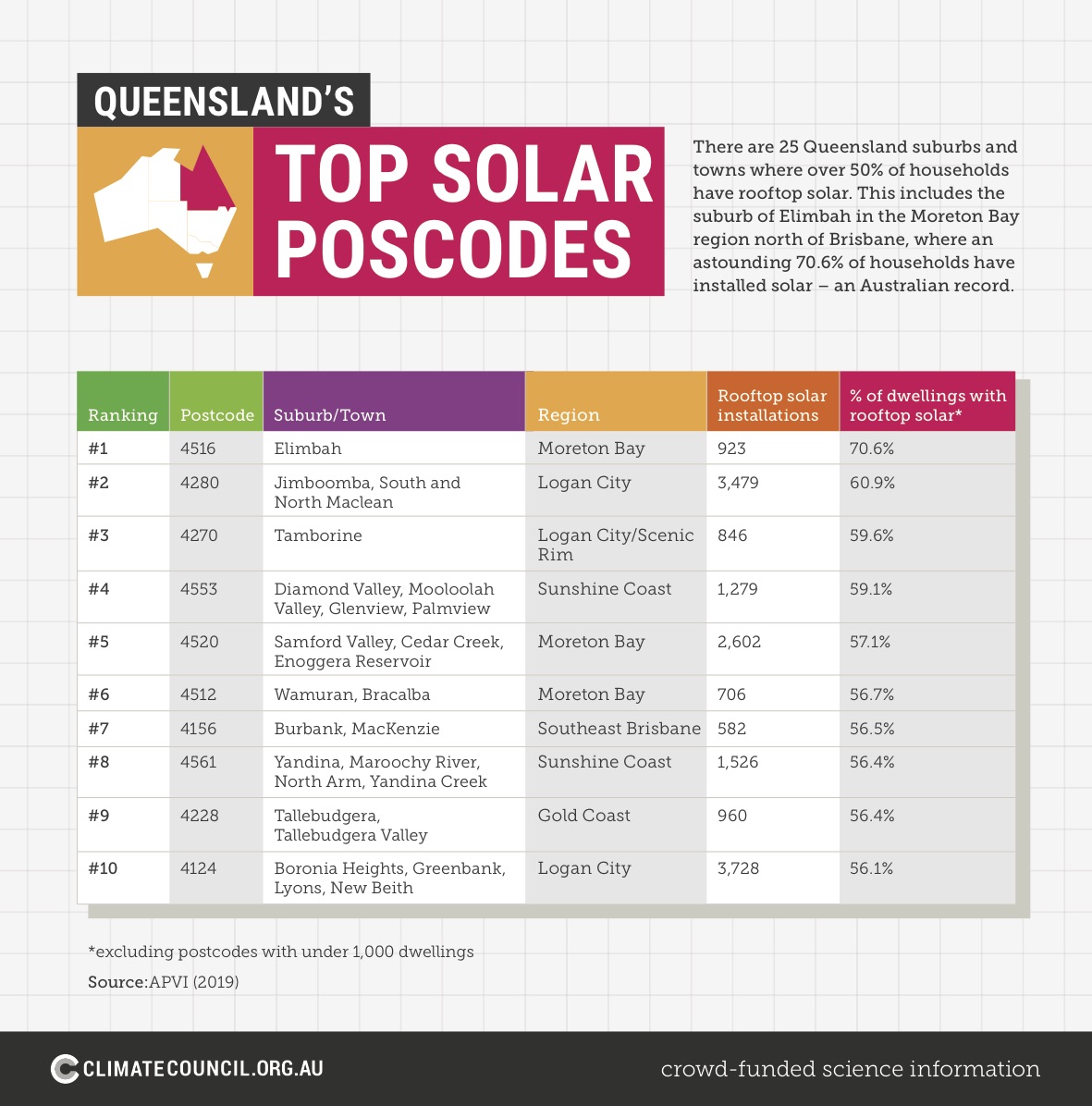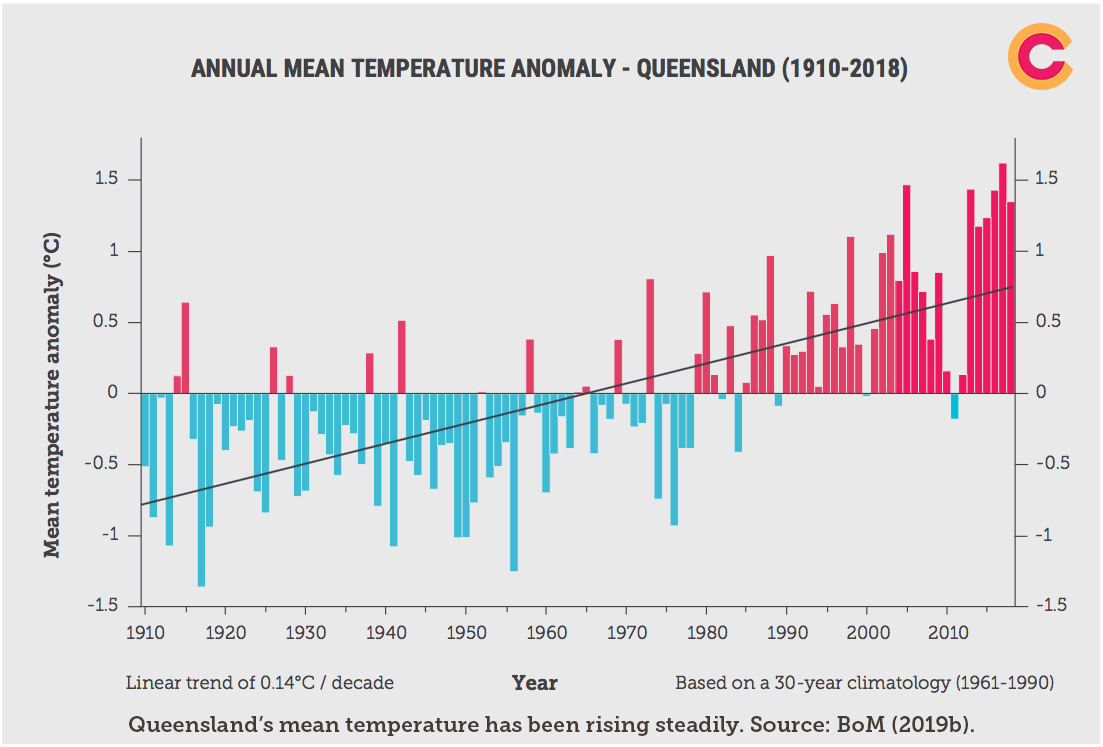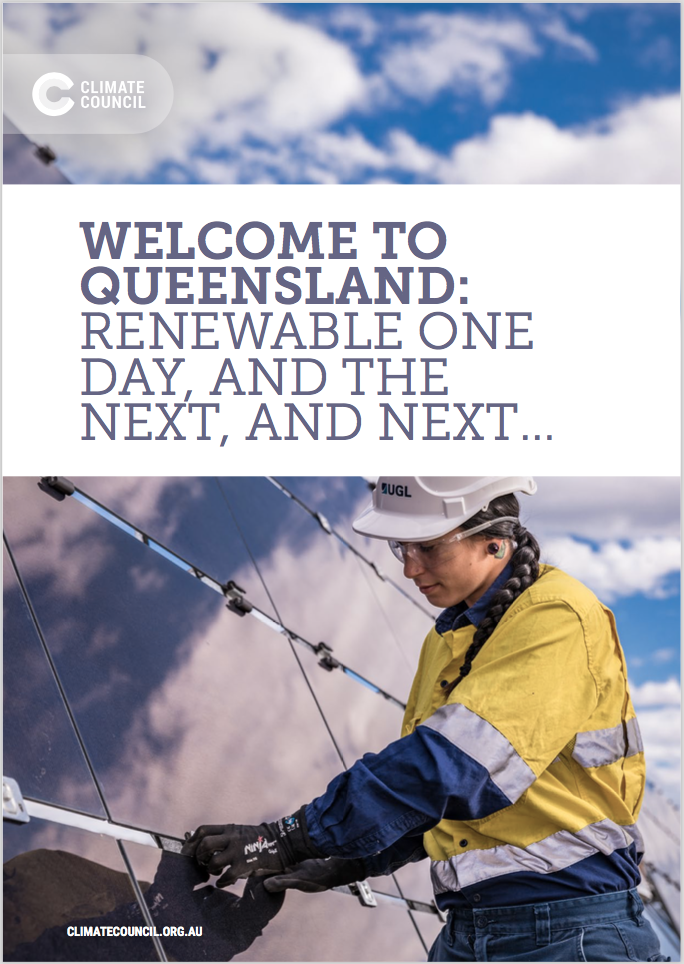Queensland is more vulnerable to climate change than any other state or territory in Australia and it is already experiencing severe climate impacts. This report, ‘Welcome to Queensland: Renewable One Day, and the Next, and Next…’ outlines the threats facing QLD, but also the economic opportunities for the state if it takes advantage of the global transition to a clean energy economy.
Queensland currently has more than 5,000 jobs in the renewables sector, more than any other state or territory. Projects under construction or about to begin will create another 4,500 jobs in the state and deliver almost $10 billion in investment.
However, more needs to be done to unlock the enormous renewable potential and associated growth in jobs and economic opportunities. Queensland has much to lose or much to gain, depending on the path that it takes into the future.
Key Findings:
Queenslanders are on the frontline of climate change and extreme weather impacts.
- Queensland is highly exposed to extreme weather, and has borne 60% of the total economic costs of extreme weather in Australia in the decade from 2007 to 2016.
- Climate change is increasing the intensity of extreme weather events that affect Queenslanders – drought, bushfires, heatwaves, floods and cyclones. These events are taking a heavy toll on the health of Queenslanders, and on the state’s many natural assets.
- Currently 65% of Queensland is drought declared, with significant impacts on the state’s rural sector. Parts of the state’s west and south have been drought-affected for more than six years.
- More than 80% of damages resulting from rising sea levels and storm surges in Australia are projected to occur in Queensland. The most vulnerable area, the Gold Coast, accounts for almost a quarter of projected national damages from sea-level rise alone.
- Queensland’s economy is reliant on climate-sensitive industries such as tourism and agriculture, and therefore needs strong local, national and international climate change action to reduce its vulnerability.
 The top solar postcodes in Queensland.
The top solar postcodes in Queensland.
Queenslanders are embracing solar energy in record numbers and the state will benefit more than most from transitioning to renewable energy.
- Queensland is called the sunshine state for a reason. One third of all households have rooftop solar, which can significantly reduce power bills. The state also has the most large-scale solar projects under construction of any state or territory.
- Renewable energy projects under construction or about to begin will create more than 4,500 jobs and deliver almost $10 billion in investment to Queensland. This is in addition to the 5,080 current jobs in the sector, which is more renewable jobs than in any other state or territory.
- North and central Queensland will be a major beneficiary of the transition to renewable energy, with the region home to six of the ten renewable energy projects under construction in the state. Already solar is affordably and reliably supplying one-third of the electricity needs of Townsville’s Sun Metals zinc refinery, supporting 450 new local jobs.
- Jobs in thermal coal are subject to uncertainty and insecurity as the world moves rapidly towards renewables plus storage (e.g. from batteries). A plan needs to be developed between stakeholders such as communities, government, industry and unions that ensures coal mine workers are supported to find fulfilling and rewarding jobs in other industries, including retraining where necessary.
Queensland has a pivotal role to play in the global climate effort by driving a smooth and just transition to net zero emissions. It is clear that the burning of fossil fuels – coal, oil and gas – must be phased out rapidly to avoid the worst impacts of climate change.
- Australia has signed the Paris Agreement to keep global temperatures well below 2˚C.
- Mining and burning the thermal coal in the Galilee Basin and other such deposits around the world would make the Paris target impossible to achieve.
- 2˚C warming would sign the death warrant of the Great Barrier Reef, a multi-billion-dollar asset supporting 64,000 Australian jobs.
- To limit warming to well-below 2˚C, a rapid phase-out of all fossil fuels is required by 2050 at the latest. This means that the vast majority of fossil fuel resources must remain in the ground unburned, and that no new fossil fuel facilities, or extensions or upgrades to existing facilities, should be permitted.
DOWNLOAD THE REPORT:
Header image credit: Genex Power

